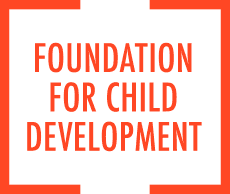https://www.fcd-us.org/current-state-scientific-knowledge-pre-kindergarten-effects/
Policymakers, practitioners, and research scientists are increasingly interested in understanding what we really know about early childhood programs. This report by The Brookings Institution and Duke University focuses on school-based preschool programs. The report provides a summary of the issues, challenges, and common ground related to preschool implementation. Chapter topics include:
- “Do Some Groups of Children Benefit More Than Others from Pre-Kindergarten Programs”
- “Do Pre-Kindergarten Curricula Matter?”
- “Characteristics of Pre-Kindergarten Programs That Drive Positive Outcomes”
- “Universal vs. Targeted Pre-Kindergarten: Reflections for Policymakers”
- “The Costs and Benefits of Scaled-Up Pre-Kindergarten Programs”
- “Challenges to Scaling Up Effective Pre-Kindergarten Programs”
- “The Promise of Preschool Education: Challenges for Policy and Governance”
- “Financing Early Childhood Programs”
- “Reframing Early Childhood Education: A Means to Public Understanding and Support”
Given the current number of state programs and an increasing interest in understanding how such programs contribute, or not, to children’s early learning, a diverse set of scientists reviewed the research evidence. This Taskforce reached consensus on what the science says about the effects of state- and school district-funded preschool programs. The six consensus statements are summarized below:
- There is often greater improvement for children with economic disadvantage and dual-language learners at the end of the prekindergarten year than there is for children with more advantages and who are English-proficient.
- Prekindergarten programs are not all equally effective. Several effectiveness factors may be at work in the most successful programs. One such factor supporting early learning is a well implemented, evidence-based curriculum. Coaching for teachers, as well as efforts to promote orderly but active classrooms, may also be helpful.
- Children’s early learning trajectories depend on the quality of their learning experiences not only before and during their prekindergarten year, but also following the prekindergarten year. Classroom experiences early in elementary school can serve as charging stations for sustaining and amplifying prekindergarten gains.
- Convincing evidence shows that children attending a diverse array of state and school district prekindergarten programs are more ready for school at the end of their prekindergarten year than children who do not attend prekindergarten.
- Convincing evidence on the longer-term impacts of scaled-up prekindergarten programs on academic outcomes and school progress is sparse, precluding broad conclusions.
- On-going innovation and evaluation are needed during and after prekindergarten to ensure continued improvement in creating and sustaining children’s learning gains.
The Taskforce recommended continued implementation and scale-up of preschool programs as long as such efforts are coupled with strong evaluation research. The full report and the consensus statement have implications for thinking more deeply about what is needed to develop and maintain an effective early care and education workforce to support children’s learning.
